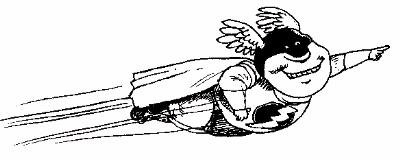






Animal Infections
By infection we mean that a micro-organism (pathogen) such as a bacteria, virus, or fungus, has reproduced within an animal to such an extent as to cause symptoms of illness. The presence of these (as can be detected by a variety of tests) is not necessarily reason for concern. For example most rabbits carry Pasturella. Whether the organism involved has recently been introduced into the animal's body (for example an abcess due to a wound) or has been dormant and harmless for some time, and only becomes problematic due to new circumstances, the end result is the same. The immune system sends out antibodies in the bloodstream to fight the infection.
If all is well, the immune system is strong, and the infection is not multiplying too fast,the antibodies will defeat them, and recovery will be spontaneous. However, as everyone knows, this isn't always the case. Sometimes the immune system simply isn't up to the job.

There are 2 basic approaches to helping an animal fight infection. Ideally everything has been done to prevent spread of infection by hygienic conditions and good nutrition, but by offering food items that help boost the immune system at times of illness, you are helping the animal to cure itself. This is the safest (from side effects) and ideal way. Typical immune system boosters are echinacea, bee pollen, horsetail, alfalfa etc. This is the type of supplement that used to be referred to as a "tonic", or "pick-me-up".
The other approach is that used by most vets, which is to offer medicine (usually an antibiotic) to actually fight the infection itself. For those of us who wish to avoid the use of pharmaceuticals, there are a wide variety of alternatives available. Probably the best known natural antibiotic is golden seal, but others such as garlic, pau d'arco, sage, mustard etc, are widely used effectively.
They key is knowing what you are dealing with (see Diagnosis). Viruses will NOT respond to antibiotics. Some fungal infections are worsened by antibiotics (even natural ones). Once you have decided what you are treating, there are a number of things to consider:
Herbs have certain advantages over pharmaceuticals. Side effects are less common (and less serious), and usually remedies can be grown in your own garden. The "untreatable" viruses can often be overcome by holistic care (immune-system boosting). Perhaps most important of all is that meat animals are still marketable as organic after herbal treatment, and dangerous resistance to antibiotics (which some people believe can be passed on to humans via ingestion of meat) is avoided.
Prophylactic (preventative) treatment by use of antibiotics is gradually being phased out by many as ineffective or even dangerous. The "shotgun" approach to treating any symptom, without diagnosis, by using a quick shot of penicillin is becoming old-fashioned and considered lazy and risky.

Animals such as waterfowl and rabbits respond poorly to penicillin and similar antibiotics, as they are mold-based. Molds are toxic to these animals. Sulfur drugs can be used as an alternative, but we have always had excellent results with herbs, and you can too. There are many books available but the one I recommend most highly is "Complete Herbal Handbook for Farm and Stable" by Juliette De Bairacli-Levy . With this, the phone number of a holistic vet, and a small herb garden and herbal medicine cabinet, you can deal with 99% of the medical problems among your animals.